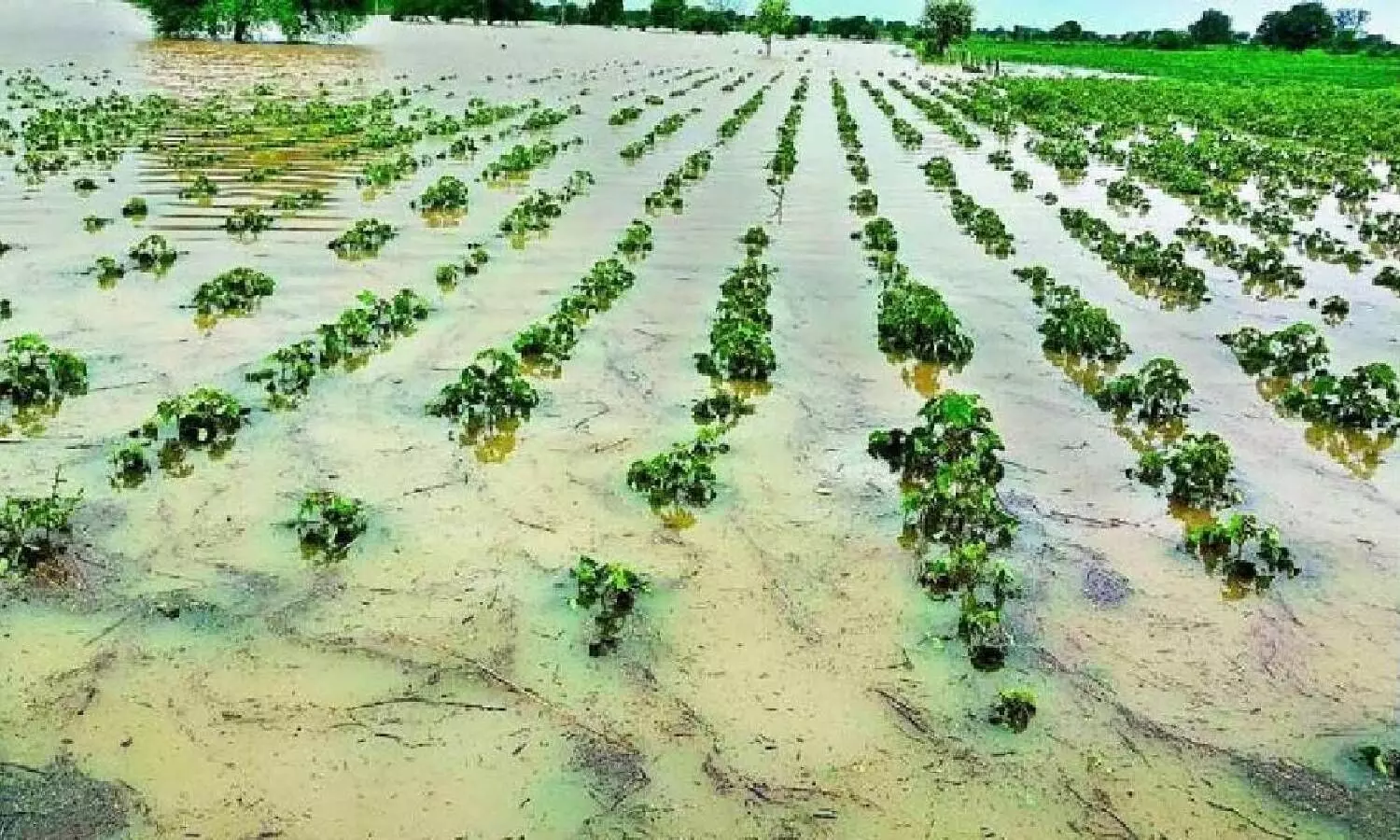Hands that feed us, made to starve: No crop insurance in TS since 2019
The Telangana government had backed out from implementing the Pradhan Mantri Fasal Bima Yojana (PMFBY) in May 2020. What does it have to offer as an alternative for the farmers in the state?
By Nimisha S Pradeep
Hyderabad: Marwani Bai cultivated cotton on 15 acres of land in her village in Narnoor in Adilabad in 2021. As the field started turning white with fully-bloomed cotton, she started calculating how she could effectively manage her expenses. But then came the rains, the season's worst, destroying Marwani's cotton. She could only get 25 quintals of cotton that season. She sold them at Rs. 8,000 per quintal but made a loss of around Rs. 1 lakh.
Like Marwani, several farmers in Telangana suffered huge crop losses in the last two kharif seasons. It is important to note that Adilabad, with more than 30,000 farmers majorly cultivating cotton, is one of the worst-affected districts when it comes to crop losses as it receives heavy rainfall during the kharif season and the temperatures also dip very low.
The Telangana government had backed out from implementing the Pradhan Mantri Fasal Bima Yojana (PMFBY) in May 2020. What does it have to offer as an alternative for the farmers in the state? Is there any government scheme that protects farmers from such unforeseen tragedies?
There are lakhs of farmers affected due to the crop loss because of heavy rains, hailstorms, and pesticides. during the kharif season every year. In September 2021, the High Court while hearing a PIL filed by RSV had ordered the Telangana government to identify the farmers affected due to crop loss in September and October 2020 and to give them compensation within three months. Even after five months, the government has not even conducted a survey to identify the affected farmers.
No insurance policy for 2 years
In May 2020, the Telangana government backed out from PMFBY. Till then, farmers used to pay around 15% of the premium to insurance companies and the rest was shared between the state and the Centre. "In 2018-19, the state government didn't pay its share of the premium and as a result, the farmers didn't receive their insurance. Only recently, did the government pay off the penalties and the farmers have just started receiving the insurance for 2018-19. For three years (from 2019) there has been no crop insurance for farmers in Telangana," explains Sree Harsha, a volunteer of Rythu Swarajya Vedika (RSV).
In fact, in the last two years, there has been no insurance policy for crop loss. "Compensation should reach the farmers when they are in distress, not after a long time has passed," says Sree Harsha.
The neighbouring state of Andhra Pradesh also walked away from the PMFBY but in 2019, the state government rolled out its own crop loss insurance scheme.
Rythu Bandhu, Rythu Bima of no help
A farmer in Kothapalle in Karimnagar died by suicide after heavy rains caused huge crop loss. Interestingly, it's not just that he didn't get any compensation for the loss but he was also not eligible for Rythu Bima as the land was in the name of his mother.
The government, in its argument for the delay in payment of crop insurance, said there is Rythu Bandhu and Rythu Bima to help the farmers. Rythu Bandhu or the Farmers' Investment Support Scheme offers financial help (to support farm investment) of Rs. 10,000 every year for each farmer to cultivate two crops. On the other hand, Rythu Bima or the Farmers Group Life Insurance Scheme aims to provide financial relief and social security to the family members or dependents of the farmer in case of loss of the farmer's life. One of the common problems with both these schemes is that these schemes are applicable only for landowners and not for tenant farmers.
Apart from the insurance schemes, the government can also compensate through the Disaster Management Act but this also has some flaws. "There is a need to rework the crop insurance amounts assured under the Disaster Management Act. They are old values and are not updated considering the increased costs," explains Sree Harsha.
The state government is blaming the Centre for not releasing the input subsidy funds to compensate the affected farmers.
Besides all this, the government lacks the sheer will and genuine interest to help the affected farmers. In 2019, there was a huge quantity of paddy lost in Mancherial. Unlike for crops like cotton, where the loss is monitored with the help of weather stations at every mandal, for paddy, it is manual monitoring by field visits. "The government officials visited the place and said there is only minimal loss. When we went there, we saw paddy crop loss all over the place. We met the District Monitoring Committee (which is not there in most of the districts) and took up the survey again along with officials from the insurance company. We found out that a lot more farmers were eligible for crop loss than what the government had mentioned," says Sree Harsha.
Recalling the shocking incident where around 17 chilly farmers died by suicide in Mahbubnagar, all within a short span of time, Sree Harsha says, "At a time when farmer suicides are rampant in the state, it is very essential to at least have a basic crop insurance policy in place. Even if it is a small amount, the farmers can at least pay off their loan interests."